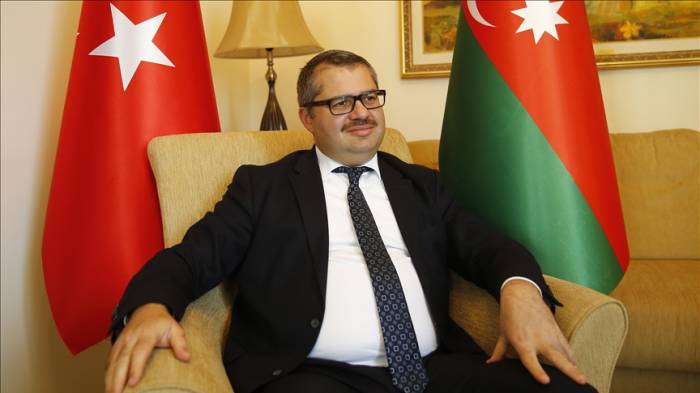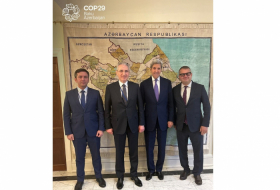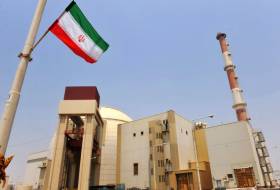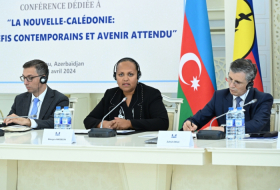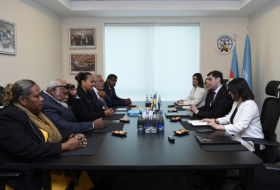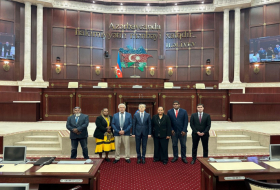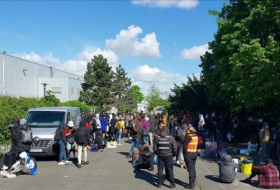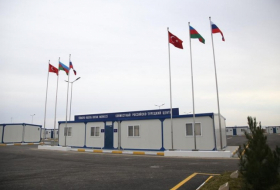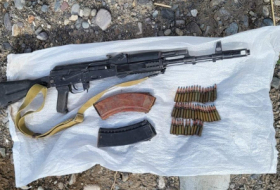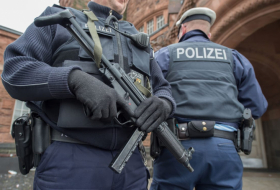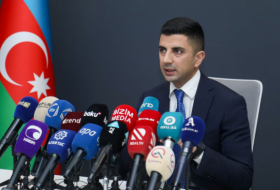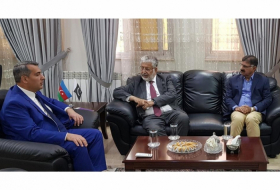"We should not forget the tragedies, the pain, the genocides that were committed against our nation, but at the same time, we’re not the kind of people to seek revenge," Khazar Ibrahim told Anadolu Agency in an interview marking the 27th anniversary of the 1992 Khojaly Massacre, which led to over 1,000 casualties, including many women and children.
The Khojaly Massacre is seen as one of the bloodiest incidents of the battle between Armenia and Azerbaijan for control of the now-occupied Upper Karabakh region.
On the heels of the Soviet Union's dissolution, Armenian forces took over the town of Khojaly in Karabakh on Feb. 26, 1992, after battering it with heavy artillery and tanks, assisted by an infantry regiment.
Ibrahim stressed that it should not be forgotten that the victims of the massacre were all ethnic Azerbaijanis in the country’s Karabakh region, among them many children, women, and elderly.
The two-hour Armenian offensive killed 613 Azerbaijani citizens, including 106 women and 63 children, and critically injured 487 others, according to Azerbaijani figures. Also, 150 of the 1,275 Azerbaijanis that the Armenians captured during the massacre remain missing.
"Despite the fact that apparently there was a humanitarian corridor for the civilians to flee, they [Armenian troops] ambushed them and indiscriminately massacred all these people," he said.
He also praised the Justice for Khojaly campaign, spearheaded years ago by Leyla Aliyeva, daughter of Azerbaijani President Ilham Aliyev, to raise awareness worldwide about what happened in the country some three decades ago.
An admitted crime
It is impossible for Azerbaijani people to forget and forgive those who committed the crime because it was deliberate, said Ibrahim.
"We have seen that even in an interview [with British journalist Thomas De Vaal], the former president of the Republic of Armenia [Serzh Sargsyan], who was among the commanders of troops which massacred our civilians in Khojaly, admitted that Azerbaijanis thought that Armenians ‘weren’t strong enough’ to go against civilians, and they proved Azerbaijanis wrong and broke the stereotypes."
He said if the leadership of a country "quite openly" states that it committed a crime for certain purposes, it proves that these people "cannot be forgiven if they haven’t even changed their mind and don’t even have regrets" about what they did.
Azerbaijan will continue to demand justice for Khojaly in the international arena, Ibrahim said, adding that many countries, including many states of the U.S., have already recognized Khojaly as a genocide, massacre, and crime against civilians.
"There were many eyewitness [accounts] as well by foreign journalists, by scholars, by politicians, and it is very heartbreaking to read their memories about these tragic events," he said.
Ibrahim said the Azerbaijani people always thought that the best way to solve problems is through peaceful means, adding: "But peace always comes with strength, and we will never tolerate the continued occupation of our territories."
At the same time, Azerbaijan will stand strong in developing its nation and capabilities diplomatically, economically, and militarily in order to withstand to any attempt to repeat such a crime in the future, he said.
The diplomat also said that there will be week-long commemorations of the massacre across Turkey organized with support from the embassy, with special focus on historical highlights and legal and cultural aspects.
Ibrahim also praised the backing of "sister nation" Turkey and its consistent support for Azerbaijan.
"Turkey has always everywhere both domestically and internationally voiced its support for Azerbaijan’s stand, and the Turkish leadership has always been very vocal also internationally, stating that there were huge and grave crimes against the Azerbaijani people," he said.
Upper Karabakh dispute
"We always call on the Armenian leadership [to say] that there is no other way the region can develop, [no way] to have good neighborly relations with continued illegal occupations, with the continued denial of crimes against humanity," Ibrahim said.
Karabakh, a disputed territory between Azerbaijan and Armenia where Khojaly is located, broke away from Azerbaijan in 1991 with Armenian military support, and a peace process has yet to be implemented.
Three UN Security Council resolutions and two UN General Assembly resolutions refer to Karabakh as part of Azerbaijan, and the Parliamentary Assembly of the Council of Europe refers to the region as being occupied by Armenian forces.
"We do believe in the universality of norms and principles of international law which should be applied without any differentiation. Unfortunately, we see bias, we see double standards," Ibrahim added.
Azerbaijan continues diplomatic negotiations hoping that common sense and adherence to the principles of international law will prevail, he said.
"When you try to prefer your own truth without any substantiation, it cannot be any truth at all," he added.
More about: #KhojalyGenocide








